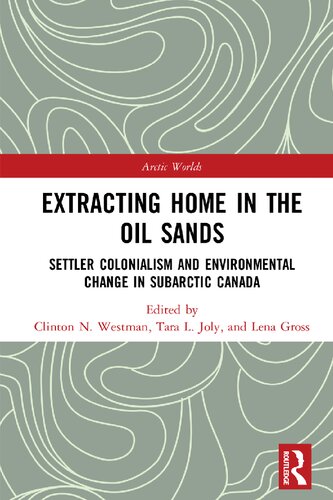

Most ebook files are in PDF format, so you can easily read them using various software such as Foxit Reader or directly on the Google Chrome browser.
Some ebook files are released by publishers in other formats such as .awz, .mobi, .epub, .fb2, etc. You may need to install specific software to read these formats on mobile/PC, such as Calibre.
Please read the tutorial at this link. https://ebooknice.com/page/post?id=faq
We offer FREE conversion to the popular formats you request; however, this may take some time. Therefore, right after payment, please email us, and we will try to provide the service as quickly as possible.
For some exceptional file formats or broken links (if any), please refrain from opening any disputes. Instead, email us first, and we will try to assist within a maximum of 6 hours.
EbookNice Team

Status:
Available0.0
0 reviewsThe Canadian oil sands are one of the world’s most important energy sources and the subject of global attention in relation to climate change and pollution. This volume engages ethnographically with key issues concerning the oil sands by working from anthropological literature and beyond to explore how people struggle to make and hold on to diverse senses of home in the region. The contributors draw on diverse fieldwork experiences with communities in Alberta that are affected by the oil sands industry. Through a series of case studies, they illuminate the complexities inherent in the entanglements of race, class, Indigeneity, gender, and ontological concerns in a regional context characterized by extreme extraction. The chapters are unified in a common concern for ethnographically theorizing settler colonialism, sentient landscapes, and multispecies relations within a critical political ecology framework and by the prominent role that extractive industries play in shaping new relations between Indigenous Peoples, the state, newcomers, corporations, plants, animals, and the land.